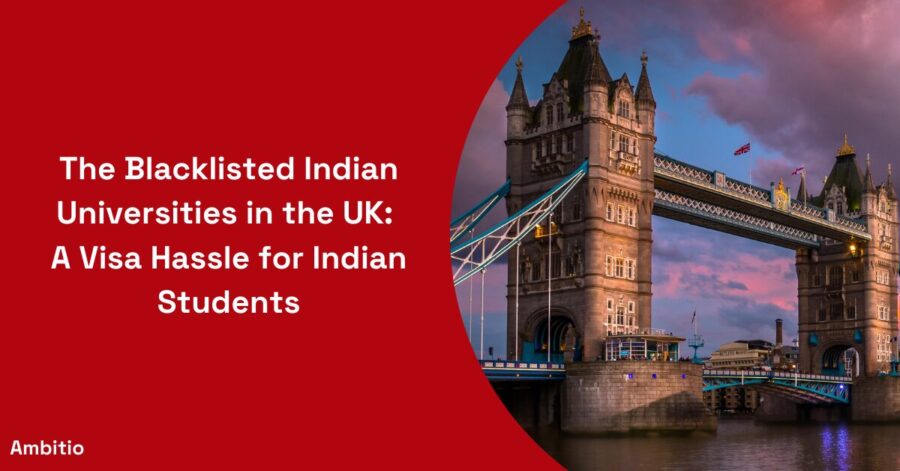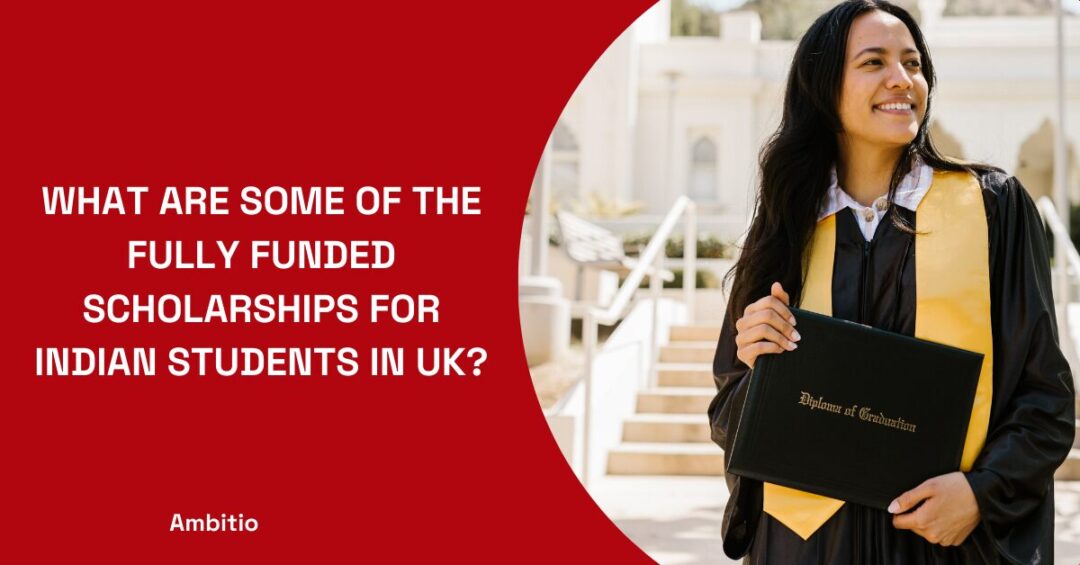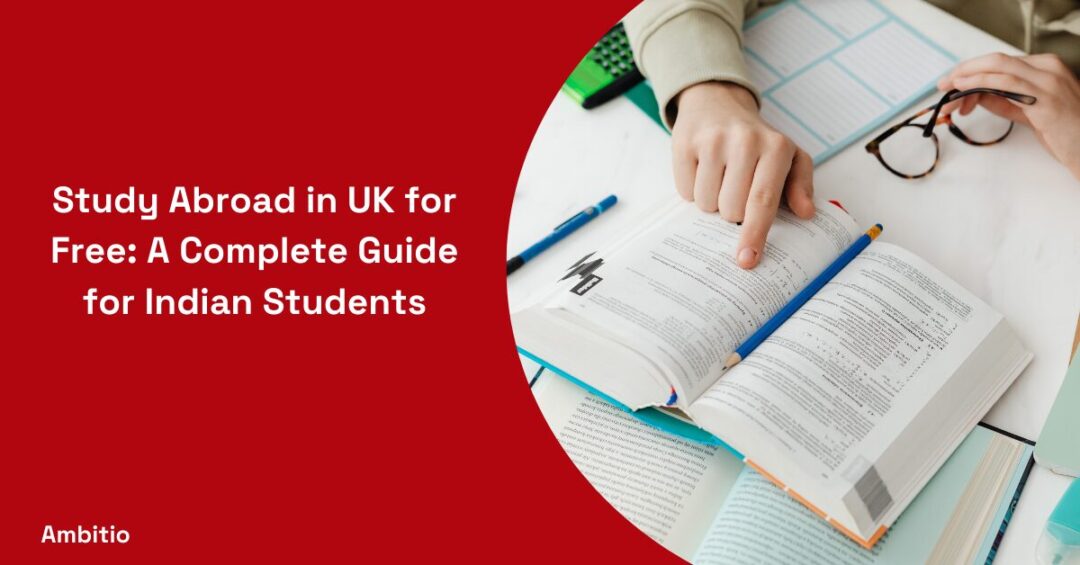12 December 2024
6 minutes read
The Blacklisted Indian Universities in the UK: A Visa Hassle for Indian Students

Introduction
Indian students have been flocking to the United Kingdom for higher education for years, drawn by world-class universities and diverse academic opportunities. However, in recent years, the issue of blacklisted Indian universities by the UKVI (UK Visa and Immigration) has been a cause for concern.
This blog explores the implications of these blacklisted universities on Indian students’ UK visa applications in 2023 and offers guidance on how to navigate this complex situation.
Understanding the Blacklist
What Does “Blacklist” Mean?
The term “blacklist” refers to a list of universities that are deemed questionable or substandard by the UKVI. These institutions do not meet the stringent criteria set by the UK government for admitting international students. Being associated with a blacklisted university can lead to serious visa complications for Indian students.
The 2023 Blacklisted Indian Universities
In 2023, several Indian universities have made it to the UKVI blacklist. These universities are not recognized by the UK government, making it extremely challenging for Indian students who graduated from them to obtain a UK visa for further studies or work.
The Implications of the Blacklist
For Indian students dreaming of pursuing higher education in the UK, having a qualification from a blacklisted university can be a major roadblock. The UKVI considers these qualifications as questionable, and visa applications from students with such qualifications may be rejected.
Furthermore, even if a visa is granted, it might be subject to additional scrutiny and may have restrictions on work and stay in the UK. This significantly limits the opportunities for Indian students who wish to study and work in the UK after completing their education.
Why Does It Matter?
The Importance of University Recognition
For Indian students, the recognition status of their chosen university plays a crucial role in their UK visa prospects. Here’s why it matters:
Visa Eligibility
Universities that are recognized by both the University Grants Commission (UGC) in India and the UK government are considered legitimate educational institutions. Indian students graduating from these universities are more likely to meet the visa eligibility criteria.
Post-Study Work Opportunities
Recognition by the UK government also affects post-study work opportunities. Students with qualifications from recognized universities have better chances of securing employment and staying in the UK after their studies.
Impact on Career Prospects
The choice of university and the recognition of the degree earned can significantly impact Indian students’ career prospects. A qualification from a blacklisted university may not be acknowledged by employers, both in the UK and back in India, limiting career options.
Potential Legal Consequences
In some cases, students who unknowingly enroll in blacklisted universities may face legal consequences. Employers may refuse to hire individuals with degrees from such institutions, and this can lead to disputes and legal challenges.
The Role of UGC and HPI Visa
The Role of the University Grants Commission (UGC)
The University Grants Commission (UGC) in India plays a crucial role in recognizing and regulating universities. Indian students should ensure that the university they plan to attend is recognized by the UGC to avoid visa complications.
Understanding the High Potential Individual (HPI) Visa
For Indian students who wish to study or work in the UK, the High Potential Individual (HPI) visa can be a valuable option. However, having a qualification from a blacklisted university can make it difficult to qualify for this visa.
Eligibility for HPI Visa
To be eligible for the HPI visa, individuals must meet specific criteria, including having a qualification from a recognized university. Blacklisted universities do not meet this criterion, making it a challenge for affected students.
Consider Alternative Education Options
If you have a qualification from a blacklisted university and are keen on studying in the UK, consider exploring alternative education options or countries with more lenient visa regulations.
How to Avoid Visa Complications
Visa complications can be a daunting prospect for any international student, and Indian students are no exception, especially when it comes to studying in the UK. To help you steer clear of visa complications related to blacklisted Indian universities, let’s delve deeper into some practical steps and strategies.
1. Research and Choose Recognized Universities
The foundation for a smooth visa application process begins with selecting a university that holds both Indian and UK government recognition. Here’s how to do it:
- Check UGC and UK Government Lists: Review the University Grants Commission’s list of recognized Indian universities and cross-reference it with the UK government’s list of accredited institutions. A recognized university will ensure your qualifications are credible in both countries.
- Evaluate Course Relevance: Aside from recognition, evaluate the relevance and quality of the courses offered by universities. Opt for programs that align with your career goals and aspirations.
2. Seek Guidance from UK Counsellors
Consulting with experienced UK counselors can be invaluable. They possess insights into the latest visa regulations, and university recognition status, and can provide personalized guidance:
- Professional Advice: UK counselors can help you navigate the complexities of visa applications and university choices. They stay updated with the latest developments and can tailor their advice to your unique circumstances.
- Document Verification: They can assist in verifying the authenticity of your educational documents and transcripts, ensuring they meet the UKVI’s stringent requirements.
3. Stay Informed and Updated
Given that the recognition status of universities can change over time, staying informed is crucial. Here’s how to do it:
- Regularly Check UGC Updates: Keep an eye on the University Grants Commission’s official website for updates on recognized institutions. Changes in recognition status, if any, are typically posted here.
- Monitor UKVI Announcements: Stay tuned to the UKVI’s announcements regarding changes in visa regulations and recognized institutions. These updates can directly impact your visa application.
4. Explore Alternative Education Options
In case you find that your chosen university is on the UKVI blacklist or if you already have a qualification from a blacklisted institution, consider alternative avenues:
- Alternative Countries: Research other countries with reputable educational systems and more flexible visa policies. Many countries offer high-quality education and welcoming immigration policies for international students.
- Skill Enhancement: Consider enrolling in skill enhancement courses or programs that complement your existing qualifications. This can make you a more attractive candidate for both employment and visa applications.
5. Seek Legal Advice When Necessary
If you believe you have been misled by a blacklisted university, consider seeking legal advice:
- Consult Immigration Attorneys: Immigration attorneys who specialize in education-related matters can help you explore your options and potentially resolve issues related to your qualification.
- Understand Your Rights: Legal experts can guide you on your rights and the possible recourse available to you in the event of misinformation or misconduct by the university.
6. Apply for Scholarships or Financial Aid
In some cases, scholarships or financial aid may be available to students facing difficulties due to qualifications from blacklisted universities:
- Research Opportunities: Look for organizations, institutions, or governments that offer financial support to students in your situation. Scholarships can alleviate the financial burden of pursuing higher education.
- Demonstrate Commitment: When applying for scholarships, emphasize your commitment to overcoming challenges and achieving academic excellence despite the hurdles you’ve faced.
7. Consider Skill and Career Development
While navigating visa complications, focus on skill and career development:
- Skill Enhancement: Invest in upgrading your skills through online courses, workshops, or certifications. Building a strong skillset can make you more attractive to potential employers.
- Networking: Build a professional network by attending conferences, seminars, and webinars in your field of study. Networking can open doors to job opportunities and professional growth.
8. Stay Persistent and Positive
Navigating visa complications can be emotionally taxing, but maintaining a positive attitude and persistence are essential:
- Stay Motivated: Keep your long-term goals in mind and remind yourself of the value of your education. This can help you stay motivated and resilient in the face of challenges.
- Seek Support: Lean on your family, friends, and mentors for emotional support. Sharing your concerns and experiences can provide much-needed encouragement.
Conclusion
For Indian students aspiring to study in the UK, the issue of blacklisted Indian universities is a critical one. It can impact visa applications and future prospects in the UK.
Staying informed, choosing recognized universities, and seeking professional guidance are essential steps to navigate this situation successfully. Make informed decisions to ensure your educational and career aspirations are not hampered by visa complications.
FAQs
Can I apply for a UK visa if I graduated from a blacklisted Indian university in 2023?
Yes, you can apply for a UK visa, but your application may face scrutiny, and you might encounter restrictions. It’s advisable to consult with UK counsellors for personalized guidance on your specific situation.
What should I do if my university is on the UKVI blacklist?
If your university is on the UKVI blacklist, consider alternative universities or countries for further studies. Ensure your chosen university is recognized by both the UGC and the UK government to avoid visa complications.
Can I work in the UK with a qualification from a blacklisted Indian university?
It’s challenging, but not impossible. You may be eligible for the HPI visa, but having a qualification from a recognized university improves your chances of securing employment and staying in the UK after your studies.
How can I stay updated on the recognition status of universities?
To stay updated on the recognition status of universities, regularly check the UGC’s official website and the UKVI’s announcements. Additionally, consult with educational advisors who have access to the latest information.
Can I rectify my qualifications if my university is blacklisted?
Rectifying qualifications from a blacklisted university can be complex. Consult with legal experts and educational consultants to explore your options and determine the best course of action.
Are there any scholarships or financial aids available for Indian students affected by blacklisted universities?
Some organizations and institutions offer scholarships or financial aid to students facing difficulties due to qualifications from blacklisted universities. Research and apply for such opportunities to ease your financial burden.
Can I appeal if my visa application is rejected due to qualifications from a blacklisted university?
Yes, you can appeal visa rejections. Consult with immigration experts or legal professionals to understand the appeal process and increase your chances of a successful outcome.

You can study at top universities worldwide!
Get expert tips and tricks to get into top universities with a free expert session.
Book Your Free 30-Minute Session Now! Book a call now




























